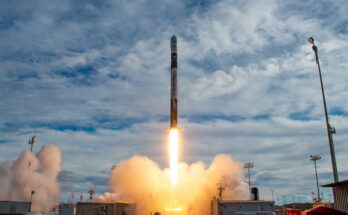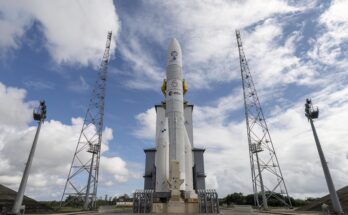
The Cygnus resupply vehicle is set to launch on a Falcon 9 rocket to the International Space Station (ISS) for the first time. Antares, the rocket previously used for Cygnus missions, is currently undergoing upgrades to replace its Russian-built engines. The Cygnus spacecraft was developed by Orbital Sciences Corp (now Northrop Grumman) to deliver cargo to the International Space Station under a NASA Commercial Orbital Transportation Services (COTS) agreement.
Antares has not launched a mission outside of Cygnus, although some Atlas V’s have been used to launch Cygnus due to an Antares explosion in 2014. Antares 230 and 230+ have been used since 2017 to launch the resupply vehicle but the situation has changed due to geopolitical factors. The last Antares 230+ launched in August 2023.
The War in Ukraine has resulted in many changes within the Space market. Russia has long been a spacefaring nation; however, the war has especially soured relations with the West. Launches have been canceled and previous cooperation is now all but nonexistent. Antares has suffered and although the Russian RD-181 that is used on Antares has long been the ire of the U.S. Government, the war has expedited that engine’s replacement.
Enter Falcon 9
Missions to the ISS must continue and the Falcon 9 launch vehicle has been chosen to launch Cygnus until Antares 330 is ready. According to SpaceNews, adapting Cygnus to Falcon 9 was more-or-less a smooth process. With launch likely at the end of January, these missions show the flexibility launch vehicles have in general. The war in Ukraine has illustrated that if something needs to get to orbit, there are a myriad of launch vehicles to pick up the slack of previous missions slated for Russian vehicles. OneWeb, which canceled Russian launches after the invasion, simply went to India and SpaceX to launch their remaining satellites.
With new rockets coming online and legacy systems still in operation, it is a buyer’s market for satellite operators wishing to orbit their spacecraft. Although Russia is not a popular partner to launch satellites, many other countries and companies can perform that task.
Carter Palmer has long held a keen interest in military matters and aviation. As a FI's space systems analyst he is responsible for updating the reports and analyses within the Space Systems Forecast – Launch Vehicles & Manned Platforms and Space Systems Forecast – Satellites & Spacecraft products.




